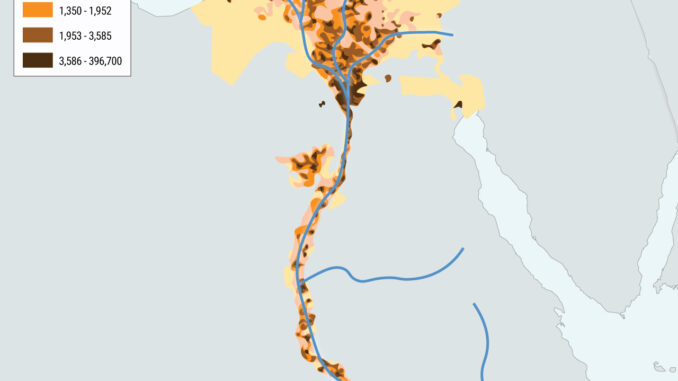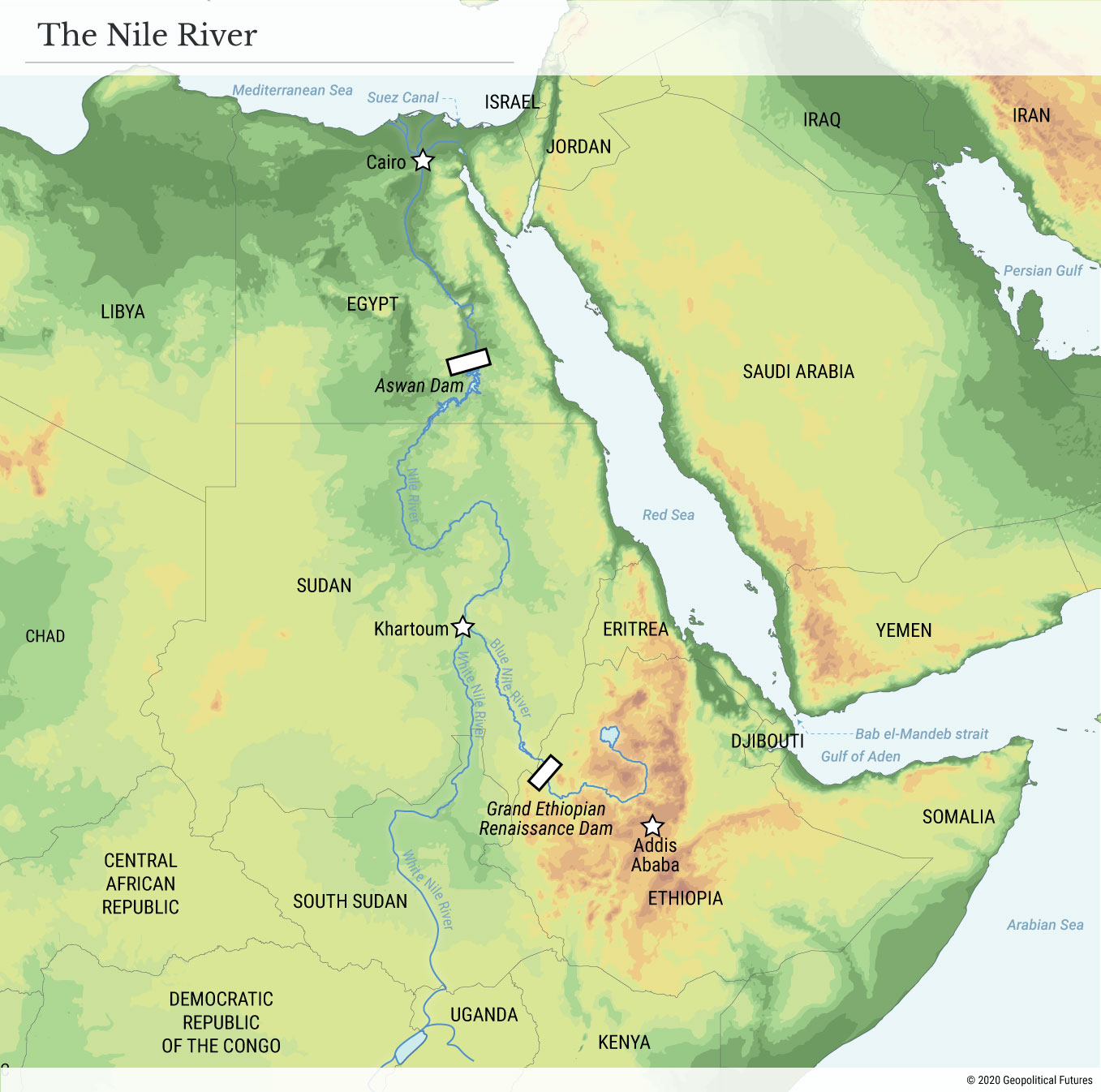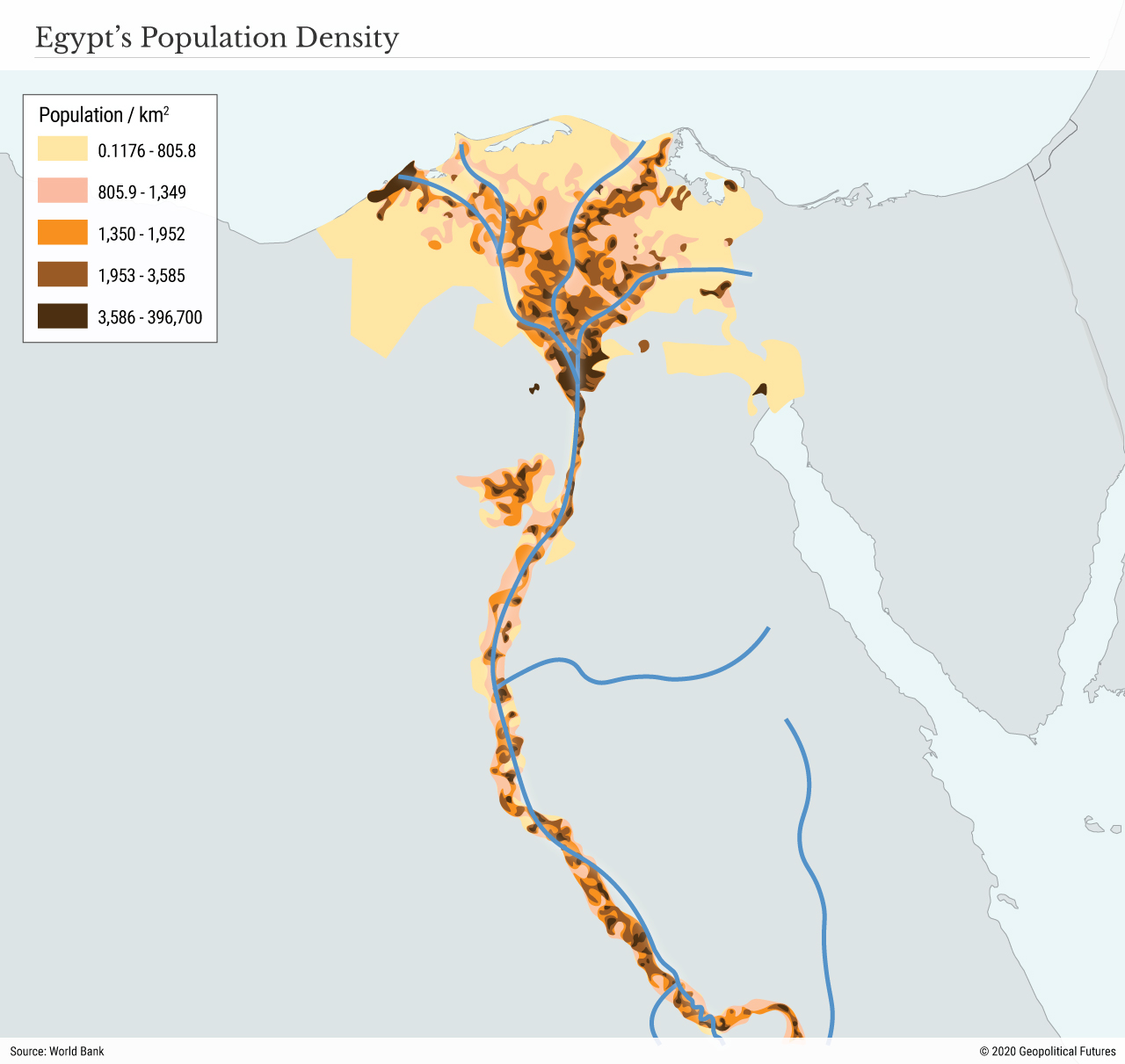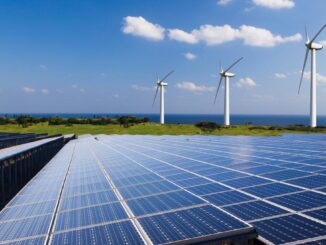
What options does a nation have when its future depends on another country’s decisions about a resource the other country controls? That’s what Egypt has to figure out. Ethiopia’s decision to build a dam on the Blue Nile threatens Egypt’s freshwater supplies. To stop the project, Cairo has tried rattling sabers at Addis Ababa, or attracting the support of a major power, but to no avail. What it has left, as stated in GPF’s 2021 forecast, is to lean on local partners and encourage Ethiopia’s ethnic divisions to try to secure for itself a better negotiating position with Addis Ababa. Whether this course of action can or will work is an open question, but other options are in short supply.
A Lifeline
In a country that is almost entirely desert, the Nile River is a natural lifeline. Over 90 percent of Egypt’s population lives along the banks of the river and its delta. Yet of the Nile River’s two major tributaries, the one that contributes roughly 85 percent of the water flowing into Egypt, the Blue Nile, starts far away, in the highlands of Ethiopia, before traversing through Sudan and finally into Egypt. And this supply is in jeopardy because Ethiopia wants to use the Nile’s waters to generate power to fuel its booming economy. The result is a zero-sum struggle for a vital resource: The construction and filling of the Grand Ethiopian Renaissance Dam will enable Ethiopia, a traditional enemy of Egypt, to regulate the Nile River’s flow, thereby compromising the security of the water flowing into Egypt.
Egypt and Ethiopia have a long history of friction over the Nile, including a failed Egyptian military invasion in 1875. Multiple water agreements were signed throughout the 20th century, but none sufficed to ensure the security of Egypt’s water supply. What makes this year different is that Egypt’s window to act is closing fast. Ethiopia steadfastly built up the GERD in parallel with negotiations with Egypt and Sudan about everything from the dam’s construction to the rate at which its reservoir would be filled. These discussions have been fruitless for Cairo, which failed to stop the GERD’s construction or reduce its size and has not convinced Addis Ababa to change its stance on the filling period. Construction is complete, and filling the reservoir is expected to take between five and 15 years, with the dam reaching full power-generating capacity as early as 2023. Egypt’s focus has therefore shifted to delaying the filling timeline, but with the clock ticking, Cairo may be compelled to do more.
Hung Out to Dry
But what can it do? A military incursion is out of the question. The Egyptian military lacks the logistical capabilities for an aerial attack on the dam and would encounter fierce resistance from Ethiopia’s air force and air defenses. Moreover, the domestic position of Egypt’s government is tenuous. In recent years, Egypt’s economy has been lackluster, requiring it to draw on loans from the International Monetary Fund and generating calls for structural reform.
Without a credible threat of military action, Egypt has had to attract Ethiopia to the bargaining table, and it’s starting from a position of weaknesses. As a result, Cairo has sought allies to improve its position. But here, too, Egypt’s choices are few and far between. Plenty of countries are intensely interested in what happens in Egypt and the surrounding areas, but most of them have more pressing needs. Russia and the United States are obvious backers for Egypt to try to recruit, due to their interests in the region and their overall strength. But the recent U.S. push to improve ties with other North African countries is creating more options for Washington besides relying on Cairo. And Russia, which needs to maintain its naval access to the Mediterranean, already has strong defense links with Algeria and a partnership with one side in Libya’s civil war. Thus, neither Washington nor Moscow needs Cairo’s help at the moment to secure its strategic needs. It is also better for them if the Nile River issue remains a limited spat between Egypt, Sudan and Ethiopia, rather than a new front in their own tense competition. This is why both the U.S. and Russia have offered to mediate the dispute but have refused to pick a side.
Smaller players in the region are no more interested in coming to Egypt’s defense. The Gulf countries would rather weaken Egypt, especially in light of their emerging reconciliation with Israel. Sudan, as another downstream country affected by the GERD, has its own interests in negotiations with Ethiopia, and it also just reached a U.S.-brokered agreement with Israel and has no interest in rocking the boat. Ethiopia’s neighbors in the Horn of Africa (Eritrea, Djibouti and Somalia) are generally reluctant to back Egypt because of Ethiopia’s reach into their economies, their shared borders and the importance of Ethiopia for stability in the horn.
For the rest of the story https://geopoliticalfutures.com/egypts-last-chance
Also subscribe to their news.





